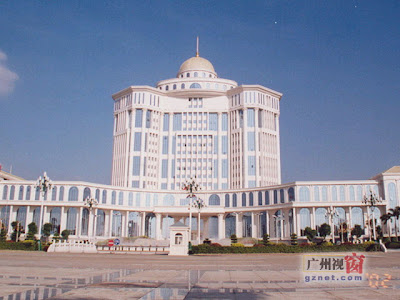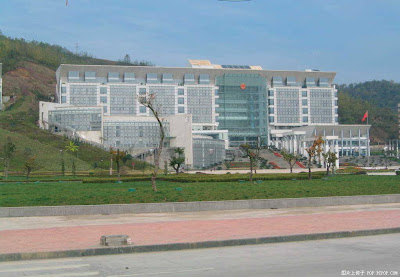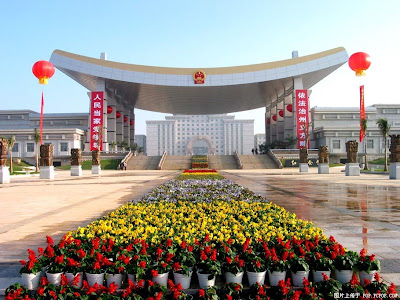“Don’t drink the water” is a cliché amongst Americans, particularly in reference to Mexico (see: Montezuma’s Revenge). So it’s interesting to hear about two issues concerning Beijing’s water supply. First, Danwei reported an announcement that Beijing’s tap water was safe to drink:
Problem is, the fact that the city’s tap water is drinkable doesn’t mean it’s drinkable from the city’s taps. Water is drinkable at the plants, but the 7000 km of pipes in the city, some quite old, introduce “secondary pollution.” Fan says, “We have a dilemma. The water piped out is clean and safe but gets contaminated before it reaches users.”
Then, it turns out half the water cooler bottles in Beijing may be fake. I bring up Montezuma’s Revenge because drinkable tap water is probably the most basic yardstick any American might use to distinguish a “developed” nation from a “developing” one. If you’ve got potable water in the taps that I trust, you’ve passed a major milestone. Now repiping all of Beijing may just be the largest plumbing project ever conceived, but consider for a moment these photos posted online of government buildings in various Chinese cities (called Palaces of Corruption by FEER’s Travellers Tales), and what might be accomplished elsewhere in the country quite quickly:



To be developed (发达) is too often associated in China with massive buildings, sophisticated weapons and opulent wealth. In 2004, Fuchsia Dunlop guided three 4 or 5 star Chinese chefs around California, who seemed to be assessing everything in terms of what China should become:
What they do want is to see how America measures up to the American Dream. They’re all familiar with the stereotype of the United States as the richest and most advanced nation in the world, its lifestyle as the holy grail of development. And they want to see it in all its brilliant modernity, to understand how far China has to go to catch up, and whether the struggle will be worth it. Given their high expectations, it’s not surprising they are disappointed. Even lovely San Francisco doesn’t fit the bill. “If that’s going to be the end result of China’s development,” says one, “then I’m really in despair.”
The extravagant mansions and leafy avenues of Beverley Hills are more promising. “This is what we should be aiming for,” says one of the chefs. But perhaps it’s a shock that the gilded life of the Hollywood elite is such a tiny part of what we actually see. The rest is simply ordinary: people going about their lives, vagrants begging on the streets, cheap consumer goods.
That’s right folks: the Beverly Hillbillies Model of Development.
Oh, if Rod Serling was alive today he could do at least a year of “Twilight Zone” episodes based on China’s view of “modernization”.
nanheyangrouchuan
But is China really all that unusual among developing countries in this respect? Not that this makes it right, but it very well make it just another step on the path to development.
Dan is right. In the States various local/state/federal buildings are “obscenely lavish” – when we have FEMA trailer parks with rampant crime and suicide rate.
That’s obscene in my book.
very good blog congratulations
regard from Catalonia Spain
very good blog congratulations
regard from Catalonia Spain
very good blog congratulations
regard from Catalonia Spain
Bobby, I’m all eyes to some photos of U.S. state buildings as lavish as some of these. I can believe it, but I need to see it.
Are you tenementpalm on delicious? If you are, I enjoy your links very much.
@Karen: Yup, thats my del.icio.us. It’s kinda like my virtual messy desk.